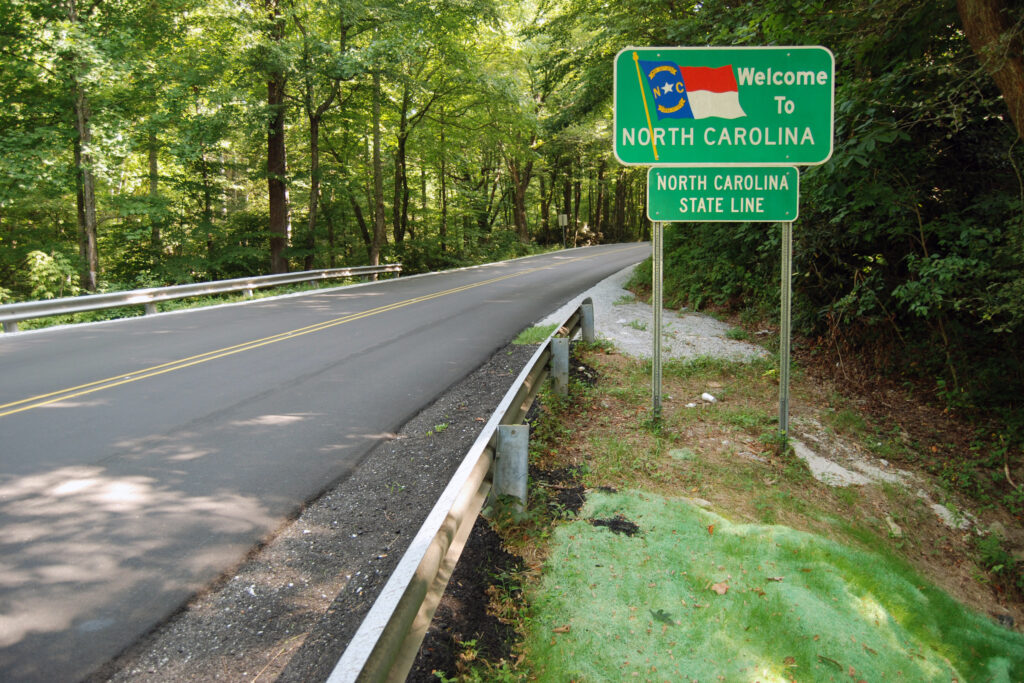Skilled Nursing in Raleigh, North Carolina: Search Near You, How to Pay, Licensing, Local Resources, and Questions to Ask
Skilled nursing facilities in Raleigh, North Carolina, provide comprehensive medical care and rehabilitation services for seniors who require more intensive support than what is offered in standard assisted living. North Carolina ranks highly for its assisted living options, reflecting the state’s commitment to delivering exceptional care standards. In Raleigh, skilled nursing care is designed to enhance the well-being and quality of life for older adults, with personalized care plans, 24-hour nursing supervision, and a focus on recovery and comfort.
Skilled Nursing Facility Communities near Raleigh, North Carolina
Swift Creek Health Center
Cary, NC 27511
Parkview Health & Rehab Center
Chapel Hill, NC 27517
Bellarose Nursing And Rehab
Garner, NC 27529
The Cardinal At North Hills
Raleigh, NC 27609
Springbrook Nursing & Rehabilitation Center
Clayton, NC 27520
Universal Health Care/fuquay-varina
Fuquay Varina, NC 27526
Hillcrest Raleigh At Crabtree Valley
Raleigh, NC 27612
Pruitthealth-carolina Point
Durham, NC 27705
The Rosewood Health Center
Raleigh, NC 27615
The Forest At Duke Inc
Durham, NC 27705

About Skilled Nursing in Raleigh, NC
In Raleigh, North Carolina, skilled nursing care refers to a high level of medical and rehabilitative care provided by licensed healthcare professionals in a clinical setting. These services are typically designed for seniors who require ongoing medical treatment, post-surgical recovery, or specialized care for chronic conditions. Skilled nursing facilities in Raleigh offer a range of services, including wound care, medication administration, physical therapy, occupational therapy, and speech therapy, all under the supervision of registered nurses and doctors. The goal of skilled nursing is to help residents achieve the highest possible level of independence while ensuring they receive the medical support they need. This type of care focuses on improving quality of life through comprehensive, personalized treatment plans.
Considerations when looking for Senior housing in Raleigh, NC
There are 11 skilled nursing facilities in Raleigh, North Carolina. The estimated population of Raleigh is 482,295 with 11.4% of that number being those ages 65 and older. In Raleigh, the summers are hot and muggy, the winters are very cold, and it is wet and partly cloudy year round. Over the course of the year, the temperature typically varies from 33°F to 89°F and is rarely below 20°F or above 95°F.
Cities near Raleigh, NC
- Cary, NC: Approximately 12 miles southwest of Raleigh.
- Durham, NC: About 25 miles northwest of Raleigh.
- Apex, NC: Roughly 16 miles southwest of Raleigh.
- Wake Forest, NC: Around 18 miles north of Raleigh.
- Garner, NC: Approximately 8 miles south of Raleigh.
Pricing and How to Pay for Skilled Nursing
Paying for senior care depends on several factors. On average, residents can expect to pay $8,943 per month for skilled nursing services. These fees encompass personalized care, engaging activities, and comfortable accommodations, ensuring a fulfilling retirement experience. Keep in mind these costs may fluctuate depending on factors such as location and facility amenities.

Paying for Senior Living and Care will vary depending on a few factors. For instance, the level of care needed; the income and savings of the resident; the state and location of the community; or if the resident is a veteran. In the United States there are over 400 programs that may offer some monetary relief for senior care, but often the majority of costs are covered by private funds and family assistance. These funds come from our Federal, State, and Local Governments.
It is important to take your time when exploring payment and coverage options.
Private pay – YES:
- Many families pay for assisted living with private funds.
- Private pay can be a combination of retirement funds, personal savings, and pension payments.
- Family members may contribute funds to pay for assisted living or other senior housing and care.
Medicare -MAYBE:
Medicare will TYPICALLY cover Skilled Nursing (SNF) care ONLY under these factors:
- People 65 years and older and individuals with end stage renal disease are eligible for Medicare benefits, no matter their income.
- Coverage is meant for people in need of short-term care.
- The person has Medicare Part A, and has available days left in their benefit period. The person has a qualified hospital stay. (3 consecutive midnights or more)
- The individual must enter SNF within 30 days of leaving the hospital.
- The person’s doctor has ordered inpatient services at a skilled nursing facility.
- The individual must need and receive the skilled care daily. The care provided must be care that the person can only receive in a SNF.
- The person needs skilled services because of an ongoing condition or a new condition that started while in a SNF for treatment of an ongoing condition.
- The skilled services must be reasonable and necessary for the treatment of the condition.
- You must receive the care in a Medicare certified SNF.
Medicaid – MAYBE:
Medicaid can be a payer source if the patient needs both care and has a financial hardship based on the individual state criteria. Eligible participants include: low-income adults, elderly adults and people with disabilities. The program is funded jointly by each state and the federal government; and national guidelines are in place do decipher how states must spend Medicaid money, but with allowances toward the guidelines. Every state has their own individual Medicaid assistance program. Each state determines what levels of care will be covered by Medicaid, who is eligible, and how much the state will reimburse the care community.
- Skilled nursing falls under Medicaid’s Nursing Facility Services.
- People who are eligible for Medicaid must meet the state criteria for skilled nursing care.
- The state of residency must abide by federal law and regulations when setting their skilled nursing care requirements.
- The patient meets the state guidelines for income and asset limits.
If you are unsure whether you qualify for Medicaid, you should apply. You may be eligible depending on your household income, family size, age, disability and other factors.For a clearer understanding on coverage contact your State Health Insurance Assistance Program.
Long-term Care Insurance – MAYBE:
Long term care insurance is a great way to pay for assisted living, and planning ahead is important when considering how to pay for senior housing and care. Nearly 75% of people over the age of 65 will require long-term care services at some point, so naturally, buying into long-term care insurance when a person is in their 50s and 60s is the most common time to do so.
- Long-term care insurance helps cover the costs of chronic medical conditions.
- Individuals and couples with the ability to pay into long-term care insurance have the advantage of a head start in allocating funds for senior care.
Veteran Aid and Assistance – MAYBE:
This benefit is available to some military veterans and surviving spouses who live in an assisted living community and those who have in-home care.
- There are specific guidelines, but a veteran may qualify for as much as $2,050 each month.
- A veteran with a sick spouse may be eligible for $1,600 per month.
- If a veteran has passed, their surviving spouse can qualify for $1,300 per month.

Questions to ask a skilled nursing facility
- Is the facility licensed?
- Has the facility’s license ever been revoked?
- Is the facility Medicare/Medicaid certified?
- What types of insurance is accepted?
- Are all specific medical needs able to be met?
- What services are offered?
- What is the rate for basic care?
- Are any reviews available to be seen by the public?
- Are protocols in place to ensure healthy, balanced meals?
- What if an individual has specific dietary restrictions, can they be met at the facility?
Additional questions and inquiries to ask skilled nursing facilities
- What should a new resident (patient) bring with them?
- What is the difference between skilled nursing and assisted living?
- What happens in case of an emergency?
- Can the family pet visit the resident?
- What is the level of privacy?
- What are the available social activities?
- What is the hours for family visits?
- Can patients request special meals for dietary needs?
- Are skilled nursing facilities connected to hospitals?
- How big are the rooms?
- What are the training requirements of skilled nurses?
Local Hospitals and Healthcare Providers in Raleigh, NC
WakeMed Raleigh Campus
- Address: 3000 New Bern Ave, Raleigh, NC 27610
- Phone Number: (919) 350-8000
UNC Rex Hospital
- Address: 4420 Lake Boone Trail, Raleigh, NC 27607
- Phone Number: (919) 784-3100
Duke Raleigh Hospital
- Address: 3400 Wake Forest Rd, Raleigh, NC 27609
- Phone Number: (919) 954-3000
WakeMed North Hospital
- Address: 10000 Falls of Neuse Rd, Raleigh, NC 27614
- Phone Number: (919) 350-8000
UNC Health Care at Panther Creek
- Address: 6715 McCrimmon Pkwy, Cary, NC 27519
- Phone Number: (984) 215-4588
Local Resources and Links
Centralina Area Agency on Aging Centralina AAA serves as the lead funder for aging services in the nine county region surrounding Charlotte, NC. Direct services also include evidence-based health programs and training and education.
North Carolina Division on Aging and Adult Services The Division of Aging and Adult Services (DAAS) works to promote independence and enhance the dignity of North Carolina’s older adults, persons with disabilities, and their families through a community-based system of opportunities, services, benefits, and protections- to ready younger generations to enjoy their later years- and to help society and government plan and prepare for the changing demographics.
The NC Seniors’ Health Insurance Information Program (SHIIP) The Seniors’ Health Insurance Information Program (SHIIP) answers questions and counsels Medicare beneficiaries and caregivers about Medicare, Medicare supplements, Medicare Advantage, Medicare prescription drug plans, long-term care insurance and other health insurance concerns. The counselors on our toll free line offers free and unbiased counseling on Medicare health care products. The North Carolina SMP Program provides assistance with Medicare/Medicaid billing errors, fraud and abuse.
Senior Legal Helpline Legal Aid of North Carolina’s Senior Law Project provides free civil legal help to North Carolinians who are 60 years of age or older. Priority is given to those with the greatest need. The Senior Law Project helps with wills, powers of attorney, public benefits (Medicaid, food stamps, Supplemental Security Income Program, Social Security Disability Insurance, etc.), abuse and neglect, unemployment compensation, housing (foreclosure, eviction, subsidized housing, repairs, utilities, etc.), consumer issues and wrongful repossession.
Eldercare Locator This is a great resource to search for specific care in specific counties and cities. This database is a nationwide resource that connects older Americans and their caregivers with trustworthy local support resources. Connect with services such as meals, home care or transportation, or a caregiver education or respite from caregiving responsibilities. The Eldercare Locator is a public service of the Administration on Aging (AoA), an agency of the U.S. Administration for Community Living.
Medicare provides a search feature to find & compare providers near you, most senior housing and care providers are included on CareAvailability.com. Find & compare plans in your area. Determine if you qualify for premium savings
Medicaid offers information on how to apply for Medicaid, eligibility criteria, links to local state offices, and additional resources
The Alzheimer’s Association is the leading voluntary health organization in Alzheimer’s care, support, and research. Whether you are living with Alzheimer’s or caring for someone with the disease, information and resources are available.
Search other areas for skilled nursing
Not finding what you’re looking for? Take a look below.
